5 Jul 2017
Independent Commissioner Against Corruption (Serious or Systemic Misconduct or Maladministration) Amendment Bill
The Hon. A.L. McLACHLAN ( 17:10 ): I rise to speak to the Independent Commissioner against Corruption (Serious or Systemic Misconduct or Maladministration) Amendment Bill. As a member of the Liberal Party as well as a member of the Crime and Public Integrity Policy Committee it is appropriate that I add my voice in support of the bill brought to this place by the Hon. D.G. Hood. It is the Liberal Party’s position to support the passage of this bill through the chamber. The clauses of the bill are identical to the bill that was previously tabled in the other place by the Liberal Party.
The Liberal Party has a longstanding policy position that there should be the ability for the commissioner to have public hearings. In the aftermath of the discovery of the tragic events that occurred at Oakden, as pointed out by my friend the Hon. Mr Parnell, the Liberal Party has itself also reaffirmed its position that public hearings for maladministration remain an appropriate policy position.
The effect of this bill has been requested by the commissioner. Unlike in corruption investigations, where the commissioner is conducting inquiries into maladministration he is required to make findings in respect of a public officer or the practices, policies or procedures of a public authority. In certain circumstances there may also be significant public interest in the subject of the inquiry. It therefore becomes important to ensure that public confidence in the process of the inquiry is not undermined by the veil of secrecy. Publicity helps guard against impropriety or the accusation of impropriety. The public are able to see for themselves the absence of bias in the decision-maker and that those who appear before the commissioner are treated fairly. It also helps ensure proper processes are adopted. Publicity is a mechanism by which the commissioner can maintain public confidence in the institution he leads.
I have learned, from my time serving on the Crime and Public Integrity Policy Committee, that it is difficult to hold the performance of the commissioner and his staff to account. Ultimately we must trust him to act appropriately. There is an independent review of the body, but this is only procedural in its nature and does not review his decisions or judgement. Therefore, one of the mechanisms for ensuring performance is the public conduct of an inquiry.
I acknowledge this solution also has its imperfections. Open hearings can cause pain and suffering for the individual who may ultimately be found to be blameless, despite the brazen and cruel headlines that remain in the mind of the public. Individuals will pay a great cost through the loss of their privacy. We have seen this occur in New South Wales and the controversial conduct of a similar organisation in that state. This risk is even greater in our modern world dominated by social media that is a collection of sensational headlines and little substantive analysis.
It is a very difficult balance, and it is a very significant dilemma. It has always been so, but over time experience has taught us that openness underpins public confidence. Without public confidence the integrity of the commissioner will be rendered impotent, no longer having a moral force to carry out his tasks. It is for this reason that the Liberal Party put forward this bill in the other place and supports the identical bill that lies before us.
When we last debated amendments to this act my colleague the Hon. R. Lucas stated that the model for our ICAC should evolve, and that its operation should be the subject of ongoing reflection by all members of this parliament as well as their respective parties. I agree with my colleague. We need to regularly reaffirm the nature of our ICAC and its operations and whether it meets the needs and expectations of our community. We must also keep an eye on the events and practices in other states and territories. This will inform us about how we proceed in this state. If we find the public are not receiving a tangible benefit from the organisation or that individuals are being unfairly impacted then, as has occurred in New South Wales, we will need to revisit the model.
We must remember that the ICAC was created to focus on corruption. I give my assurance to honourable members that I will continue to diligently examine these issues as a member of the Crime and Public Integrity Policy Committee. I indicate my support for the second reading.
View source
